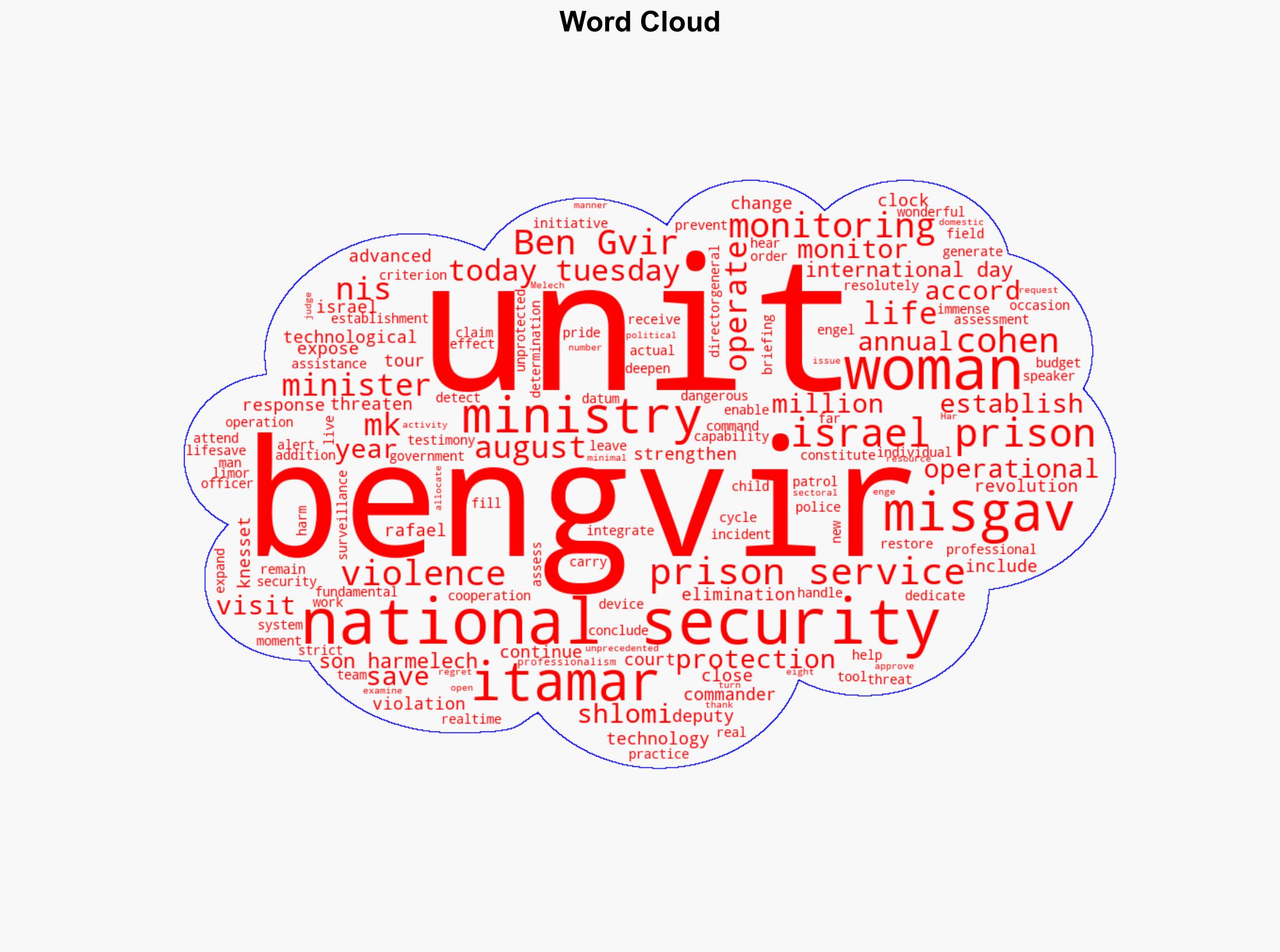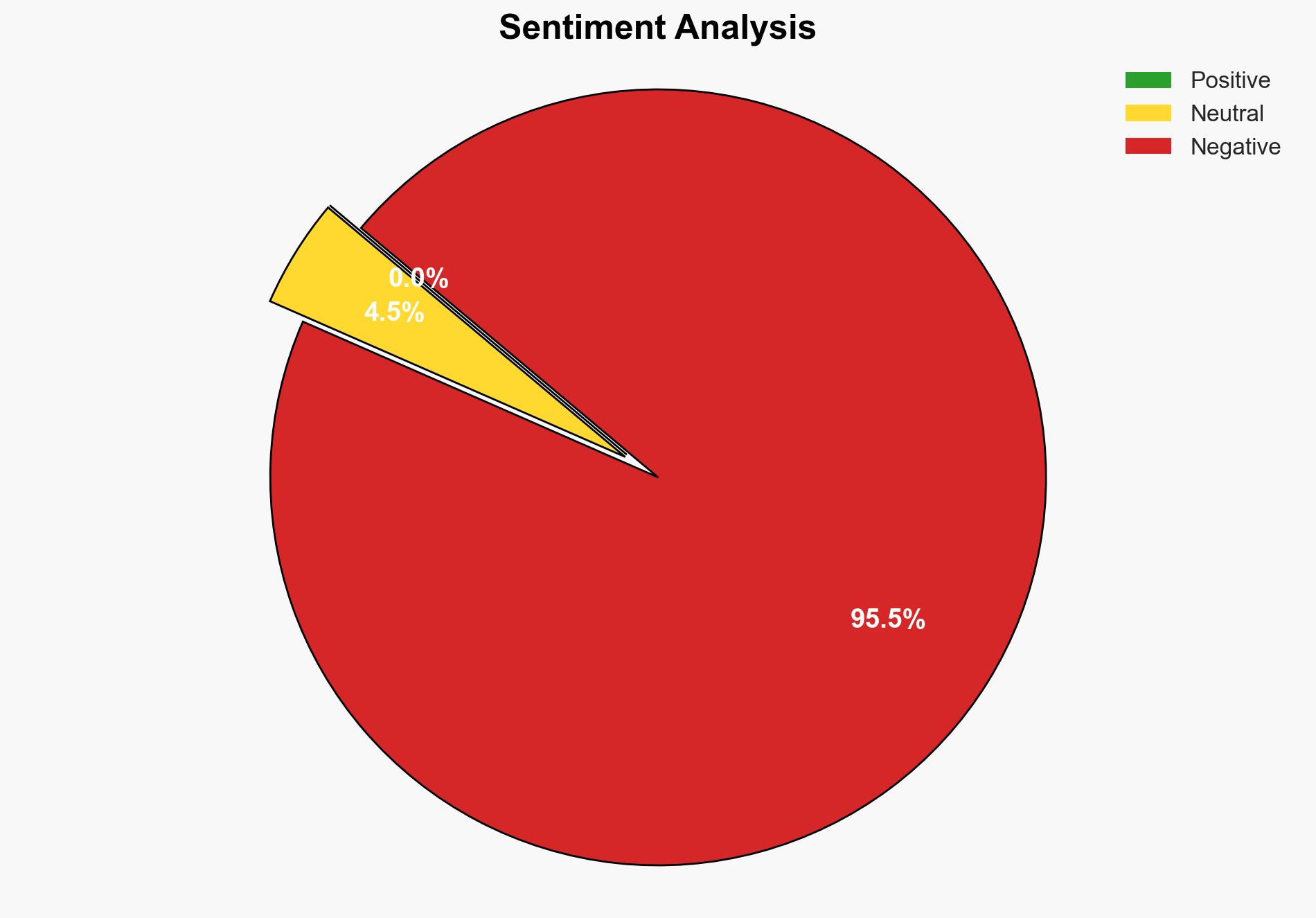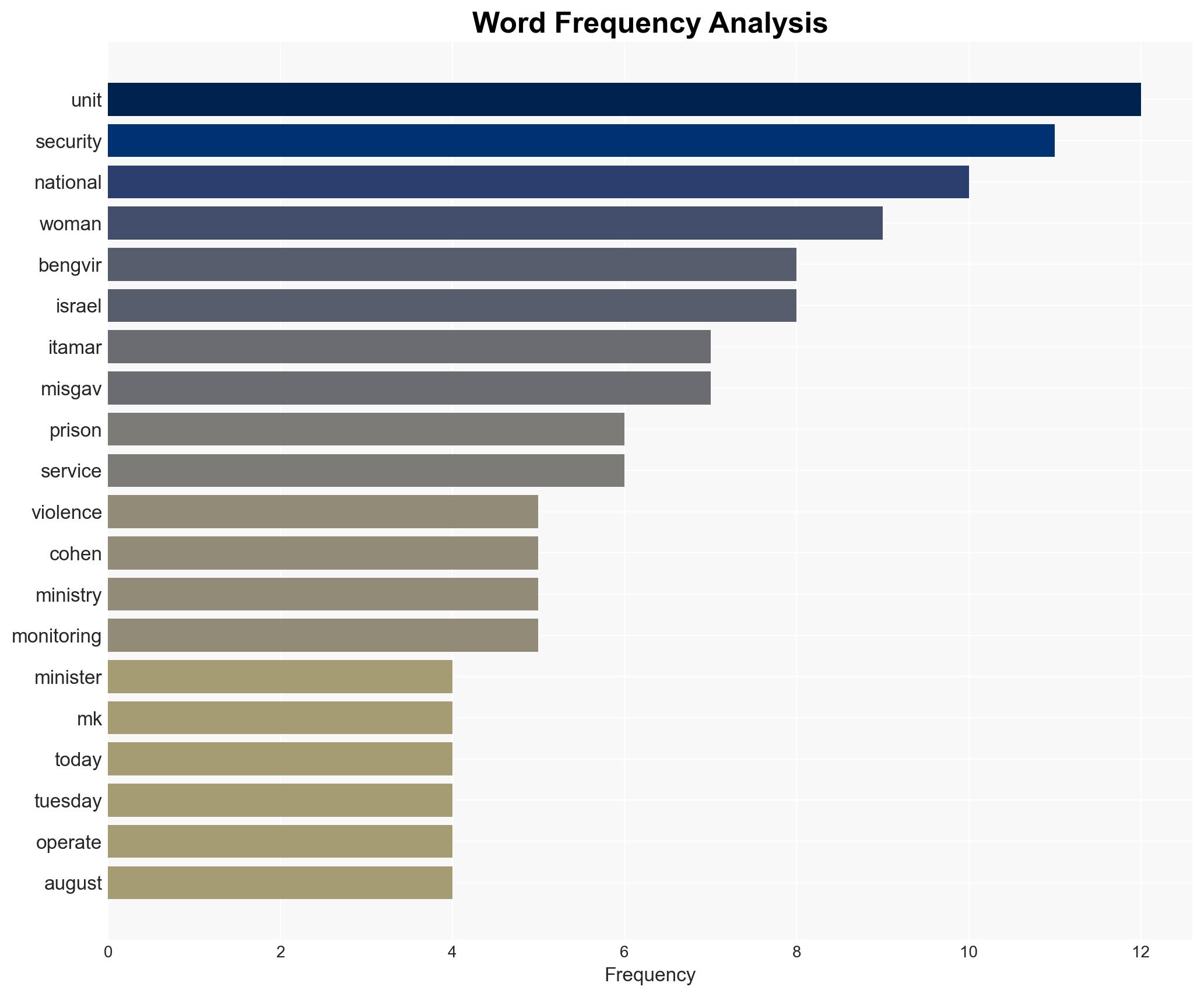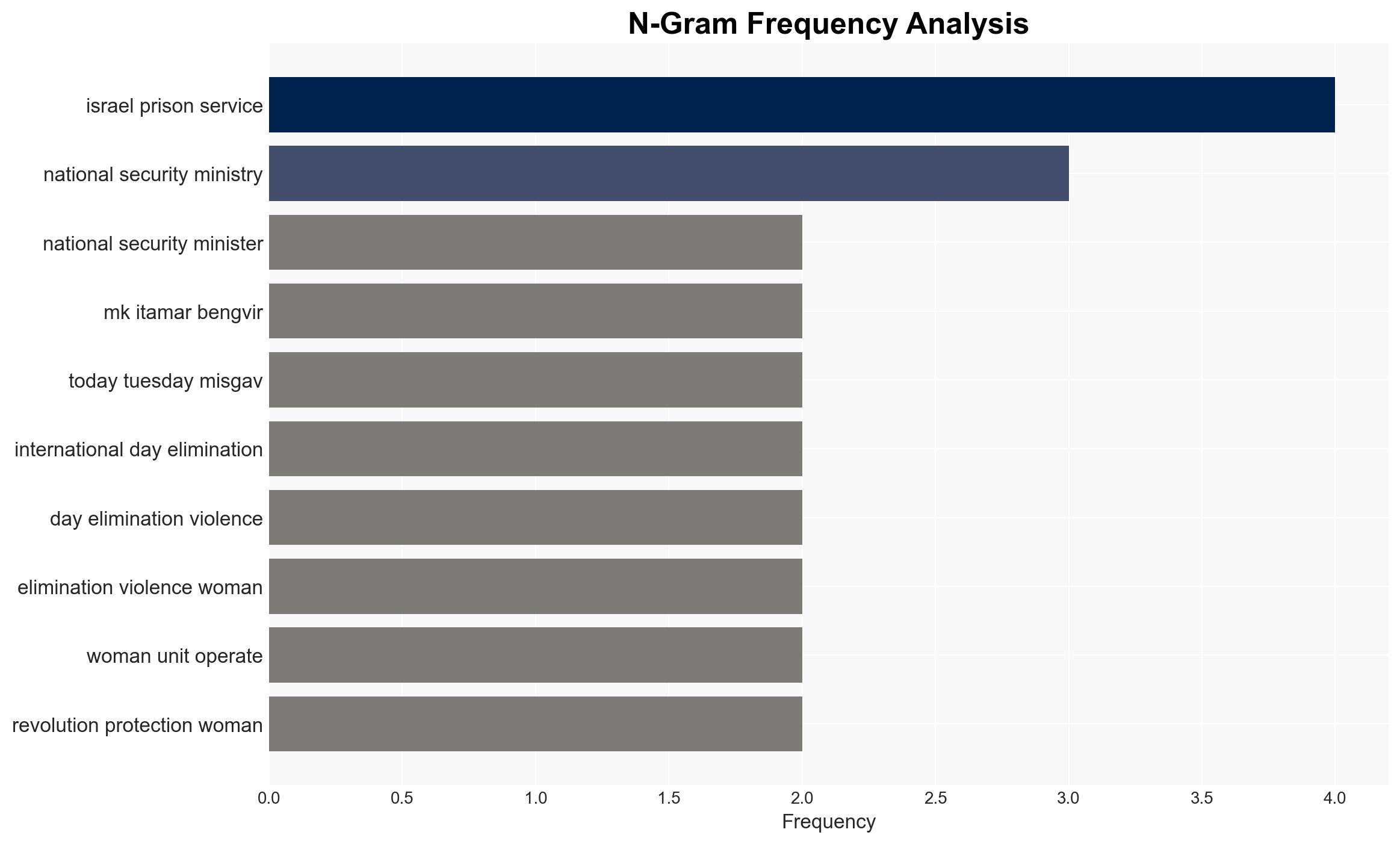New Prison Service unit to target violence against women
Published on: 2025-11-25
AI-powered OSINT brief from verified open sources. Automated NLP signal extraction with human verification. See our Methodology and Why WorldWideWatchers.
Intelligence Report:
1. BLUF (Bottom Line Up Front)
The establishment of the Misgav Unit within the Israel Prison Service, aimed at combating violence against women, represents a strategic initiative with potential for significant impact. The most supported hypothesis suggests that this unit will enhance protection and monitoring capabilities, but its effectiveness will depend on implementation and inter-agency cooperation. Confidence level: Moderate. Recommended action: Monitor the unit’s progress and inter-agency collaboration to ensure effective deployment of resources and technology.
2. Competing Hypotheses
Hypothesis 1: The Misgav Unit will significantly reduce violence against women through enhanced monitoring and rapid response capabilities. This hypothesis is supported by the allocation of resources, advanced technology, and dedicated personnel.
Hypothesis 2: The Misgav Unit will face challenges in achieving its objectives due to potential bureaucratic inefficiencies, lack of coordination with other agencies, and possible political interference. This hypothesis considers historical challenges in inter-agency cooperation and political dynamics.
The first hypothesis is more likely given the structured approach and resource allocation, but the second hypothesis cannot be discounted due to existing systemic challenges.
3. Key Assumptions and Red Flags
Assumptions: The unit will receive continuous funding and political support; technological solutions will be effectively integrated; inter-agency cooperation will be seamless.
Red Flags: Potential for political influence affecting operational priorities; reliance on technology without adequate human oversight; insufficient training or resources for personnel.
Deception Indicators: Overstated effectiveness in initial reports; lack of transparency in operational outcomes.
4. Implications and Strategic Risks
Political Risks: The unit’s success or failure could influence public perception and political capital for involved politicians, particularly Itamar Ben-Gvir.
Cyber Risks: Dependence on technological monitoring systems may expose the unit to cyber threats, requiring robust cybersecurity measures.
Informational Risks: Miscommunication or misinformation regarding the unit’s effectiveness could undermine public confidence.
5. Recommendations and Outlook
- Actionable Steps: Establish clear metrics for success and transparent reporting mechanisms; enhance inter-agency training and coordination; implement robust cybersecurity protocols.
- Best Scenario: The unit effectively reduces violence against women, serving as a model for similar initiatives.
- Worst Scenario: The unit fails to achieve its objectives due to systemic issues, leading to public and political backlash.
- Most-likely Scenario: The unit achieves moderate success, with ongoing adjustments needed to optimize operations.
6. Key Individuals and Entities
Itamar Ben-Gvir, Shlomi Cohen, Limor Son Har-Melech, Rafael Engel
7. Thematic Tags
Structured Analytic Techniques Applied
- Cognitive Bias Stress Test: Expose and correct potential biases in assessments through red-teaming and structured challenge.
- Bayesian Scenario Modeling: Use probabilistic forecasting for conflict trajectories or escalation likelihood.
- Network Influence Mapping: Map relationships between state and non-state actors for impact estimation.
Explore more:
National Security Threats Briefs ·
Daily Summary ·
Support us





